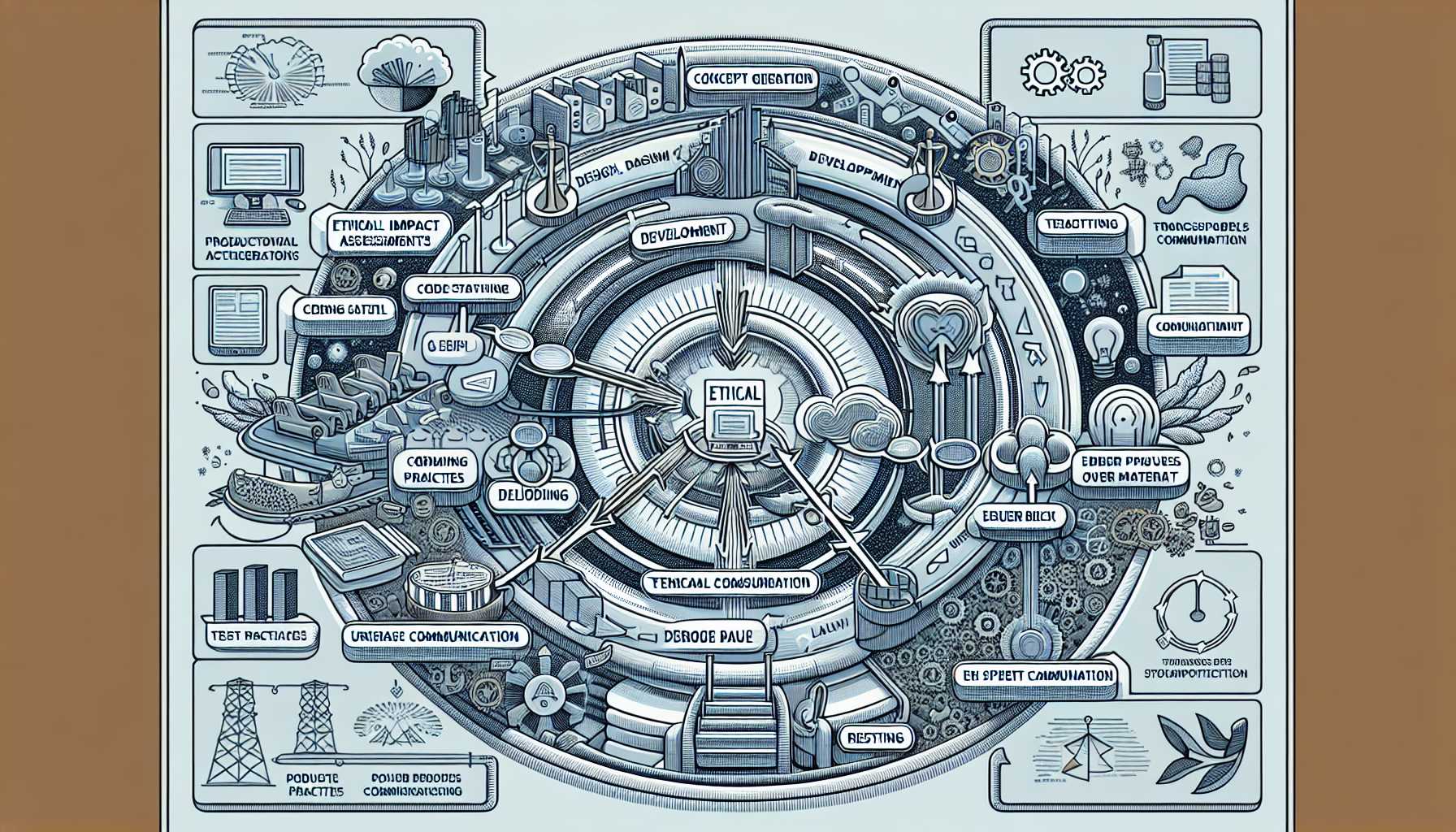Product managers, as gatekeepers of innovation, we bear a profound responsibility. We must ensure that the products we create and evolve are not only efficient and profitable but also ethical and socially responsible. In this post, I will share methods and frameworks for embedding ethics into the product development lifecycle, drawing upon personal experiences to illustrate these principles in action.
Starting with Product Ethics
Product ethics refers to the moral principles guiding the design, development, and deployment of technology. It encompasses a wide range of considerations from user privacy to the societal impact of technology.
Establishing an Ethical Framework
To navigate this complex territory, developing an ethical framework for decision-making is crucial. This framework should be centered around core values such as:
- Transparency
- Respect for user privacy and data security
- Inclusivity and accessibility
- Societal impact
This framework becomes the lens through which every product decision is evaluated.
Experience: At my previous company, we defined a set of ethical guidelines that all products had to meet before launch. This framework not only helped us identify potential issues early on but also fostered trust with our user base by demonstrating our commitment to ethical practices.
Implementing Ethics Throughout the Product Lifecycle
Ethics must be integrated at every stage of the product lifecycle:
1. Ideation and Design
Ensuring ethical considerations from the start can avert costly or damaging issues down the line.
Technique: Use Ethical Impact Assessments (EIAs) to proactively evaluate the potential effects of your product on users and society. Involve stakeholders from diverse backgrounds to get a broad perspective on the ethical implications of your design choices.
Personal Case: Before developing a new app feature that leveraged user data, we conducted an EIA. It revealed privacy concerns that were not initially apparent, leading us to redesign the feature to better protect user data while still achieving our business objectives.
2. Development and Testing
During development, ethical coding practices—such as adhering to open-source licenses and avoiding biases in algorithms—must be mandatory.
Approach: Implementing code audits and reviews with an ethical checklist ensured our development was aligned with our ethical standards.
3. Product Launch
Transparency with users about how their data will be used, and the measures taken to protect it, should be clear and upfront.
Example: In launching a new service, we made it a priority to clearly communicate how customer data would be used. This transparency was critical in building trust and promoting user adoption.
4. Post-Launch
Maintaining a dialogue with users about ethical issues and responding to concerns is an ongoing process.
Experience: We established a user council that included a diverse group of customers. Their insights into the ethical aspects of our product were invaluable, informing regular updates that aligned with our users’ values.
Challenges and Solutions
Embedding ethics into product management is not without its challenges. One of the biggest is the tension between ethical practices and time-to-market pressures. To counter this, emphasize the long-term benefits of an ethical approach, including brand reputation and customer loyalty.
Another challenge is staying abreast of the evolving ethical landscape, especially in tech. Regular training sessions and workshops on ethical issues can help keep the team informed and engaged.
Finally, measuring the impact of ethical considerations can be difficult. Develop qualitative and quantitative metrics to track and report on how well your products align with ethical objectives.
Concluding Thoughts
Product managers, the responsibility to develop and maintain ethically sound products is paramount. We must strive to be leaders, not just in innovation, but also in ensuring that our products serve the greater good. At all stages, our decisions should be guided by a deeply ingrained ethical mindset that advocates for the well-being of users and society at large.
Through the techniques and experiences shared, I hope to inspire you to champion responsible and ethical product development in your organizations.
Keep leading with integrity, and together, we’ll build not just better products, but a better world.

